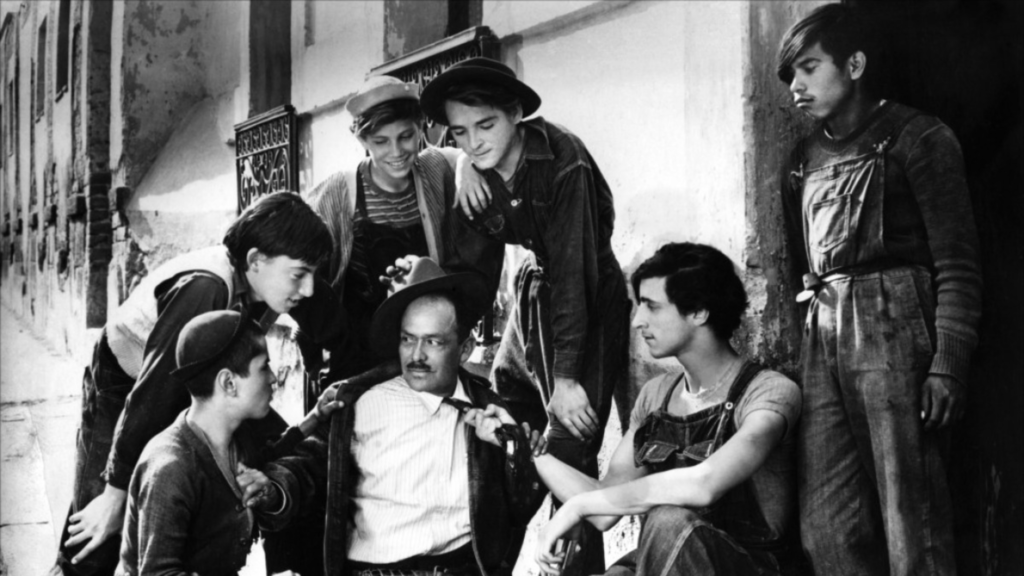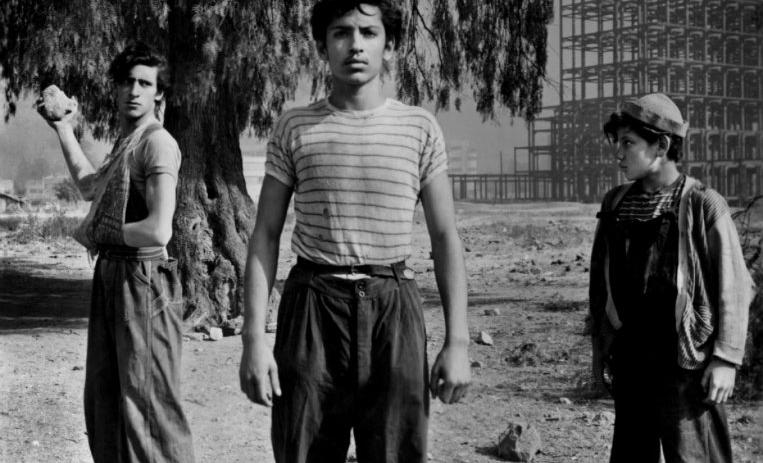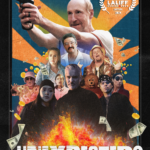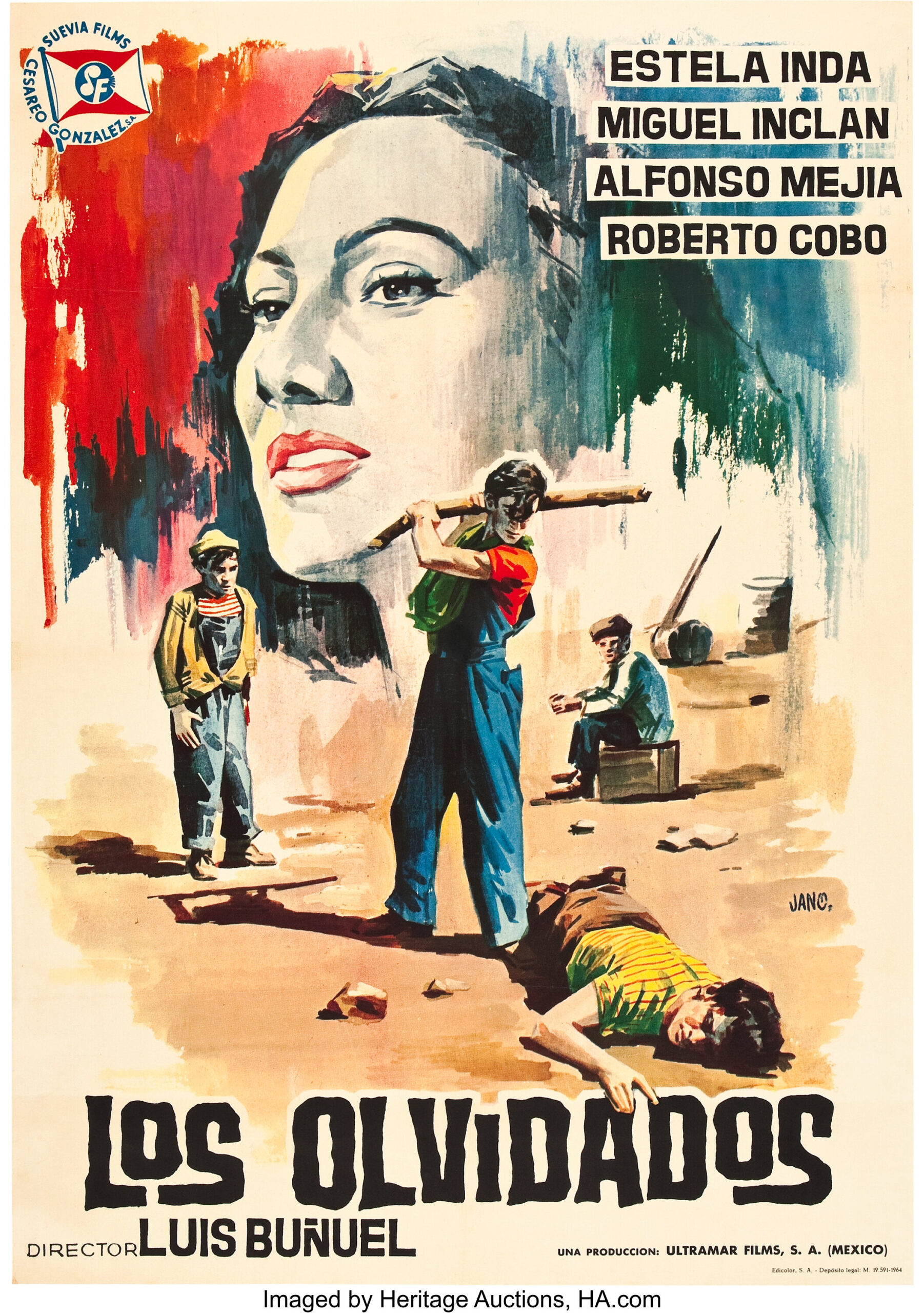by Alfredo Galindo,
Retro Review. After his stop in Hollywood being exiled from Spain with the start of its Civil War, surrealist filmmaker Luis Buñuel found Mexico not only a country where he was more confident to communicate in his native Spanish but to keep his creative genius … or so he thought. An equivalent of Hollywood as a Latin American film industry since the beginning of its Golden Age with the box office hit “Allá en el Rancho Grande” (Fernando de Fuentes, 1936), with the arrival a decade later of Buñuel to Mexico City, his prestige as a filmmaker on his native country opened instantly the doors of mainstream Mexican studios to direct box office hits with some of the greatest films stars of its time such as Jorge Negrete (“Gran Casino”, 1946) or Fernando Soler (“El Gran Calavera”, 1949).
But Buñuel wasn’t happy enough with his creative freedom as a filmmaker as the reality he found in the slums of Mexico City was the real story. Buñuel wanted to put on the big screen delinquent children whom, neglected by their own parents and families, were out in the streets and if caught being forced to serve their time on a reform school or, even worse, being dead in the process. That was the story of “Los Olvidados”, a film Buñuel was lucky enough to put together thanks for the support of the producer of his former box office hits, Oscar Dancigers, who expected a related smash to Ismael Rodriguez’ “Nosotros los pobres” (1948) as one of that film’s main actors, Miguel Inclán, was the one Buñuel wanted to play a wandering blind man who serves as conductive thread to the main story.

Full of offbeat images and symbolism, Buñuel mixes realism and surrealism in what is not only one of his most powerful films but also one of the greatest and most heart-wrenching films about poverty and childhood.
Thus, the main characters of “Los Olvidados” (“The Forgotten Ones”) are Pedro (Alfonso Mejía), who tries hard to win the affection of his mother (Estela Inda) who despises as her eldest son for leading her to a life she didn’t want, but on his way to get a decent job joins gang leader El Jaibo (Roberto Cobo) on a moral decay. Although “Los Olvidados” was a box office disappointment on its first run when it opened in 1950 for being too distant to the commercial appeal of “Nosotros los pobres” (“We the Poor”), when it premiered at the Cannes film festival with a push of Mexican poet and intellectual Octavio Paz, the film won Buñuel the Best Director Award of the Festival in 1951, a winning streak that continued at the Arieles ceremony of that year (the Mexican equivalent of the Academy Awards.)

The film also won in the main categories that year; including Best Picture, Best Director; Best Child Actor for Alfonso Mejía; Best Youth Actor for Roberto Cobo; Best Supporting Actress for Estela Inda; Best Story and Best Screenplay for Luis Buñuel and Luis Alcoriza; Best Cinematography for master Gabriel Figueroa; Best Film Editing; Best Production Design and Best Sound. But the main prize for the film came late in 2003, 20 years after Buñuel passed away, when “Los Olvidados” became the only Mexican film to be declared “Memory of the World and Cultural Heritage of the Humankind” by the United Nations Educational, Scientific and Cultural Organization (UNESCO).




